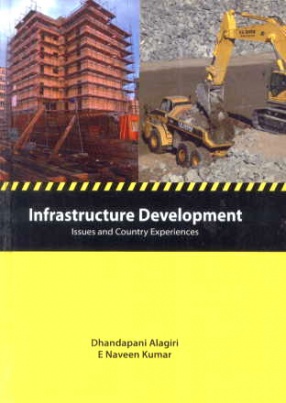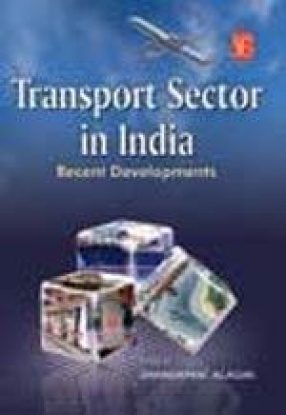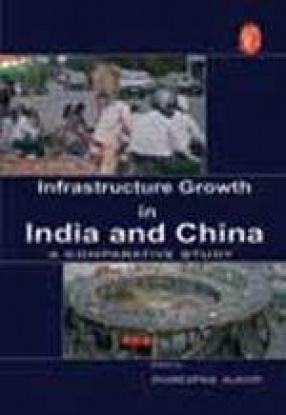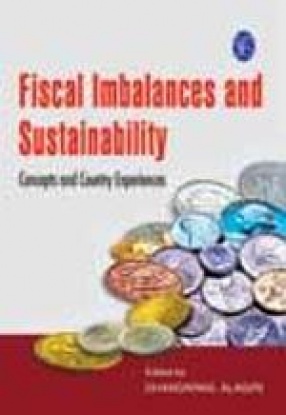
Dhandapani Alagiri

30 books





Infrastructure is one of the prime movers of any economy in the world. The wheels of infrastructure are needed for an economy to roll on, without which the industries and businesses that power the economy will come to a grinding halt. A shortfall in the availability of transport, logistical facilities, energy etc. to run the industrial juggernaut, will lead to catastrophic problems for any country, more so, in the case of the developing countries, which have very ...

The World’s resources are being continuously consumed at an increasing pace and the destruction of the natural resources and environment as a consequence are also increasing at a fast pace. This unchecked use of natural resources has led to wanton environmental degradation and pollution. In recent decades, the pollution of the natural environment has gathered pace and the environmental conditions have worsened further. This has led to degradation of soil, ...

Hedge funds are often perceived to be exotic investments because of the fact, that they operate in seclusion away from the glare of media scrutiny and regulatory mechanisms. Hedge funds are usually used by wealthy individuals and institutions and are allowed to use aggressive strategies unavailable to mutual funds. Most of these funds operate out of offshore financial centers to take advantage of tax savings and friendly regulatory environment. The hedge fund ...

The Indian securitization market has seen a rapid progress in the last few years. The progress has been in terms of both volume and complexity of the transactions completed. Even though the market is presently at a nascent stage and young compared to the developed western markets, it is maturing fast and the players are gaining experience in putting together complex securitization deals. Securitization in India started off with a portfolio of auto loans and has ...

Financial markets have always been risk-driven to a certain extent and there has been an underlying risk taking perception in financial markets, and banking also has this norm. The aim has been to maintain commensurate returns with respect to the risk taken. However, the risk scenario has changed considerably over the last two decades as a result of increasing complexity in the deals made and the varied nature of the financial instruments used. In the Indian ...

The concept of money laundering was always negative in nature and is now seen as a monetary transaction that generates an asset as the result of an illegal act. This now includes tax evasion and false accounting. Today, money laundering continuoes to be linked with the problem of drug abuse and for financing terrorists.

The banking scenario in India is that of a highly developed nature, even though it is still far away from achieving world standards in terms of size, products and services. Indian banks have realized that with organic growth there is a need to grow inorganically as well, to be competitive with other players in the market. In this scenario, retail banking has been the focus of attention for the banking industry. The emergence of new economies and their rapid ...

this book, The Icfai University Press on Corporate Turnarounds: Indian and Global Experiences will make useful reading, capturing the important perspectives of corporate turnarounds and highlighting practical cases in corporate turnarounds. It presents a series of well-written articles that bring out the essence of the happenings in corporate turnarounds. The collection of articles in the first section gives the reader some of the important perspectives of the ...

The dynamics of the global forex markets has undergone dramatic changes over the years. With the evolution in high technology that provides for round-the-clock connectivity, the forex markets have extended their continuous presence in cross-border capital movements through the Asian, European and American time zones. International trade has been changing direction and the emerging economies are becoming stronger by the day. The huge reserve accumulation by the ...

Corporate restructuring is the generic term for the general reorganizing that a company may undergo to reorient itself for the changing business and other environments and to sustain its advantage in the business. The reorganization may make the company more efficient and hence, more profitable. Restructuring is done to manage bankruptcy and effect a turnaround of a company. Ensuring survival and improving competitiveness have been the principal drivers behind ...

India's foreign trade has been improving over the last decade and a half, even though it is still to achieve a significant share in the overall world trade. The exports are no longer seen as needed only for getting dollars for payment of imports, as was the case when the nation followed import substitution as the policy in the early years. In recent years, India s exports have become more and more competitive in the global markets and are penetrating into new ...

Telecommunication forms an important base infrastructure for modern economies and has become an integral part of various activities of such economies. Telecommunication plays an important role in developing the economic order by eliminating the distance and the associated time constraint. The Indian telecom sector is growing at a great pace. The sector has become one of the fastest growing telecom markets in the world (mobile phone connections in India are ...

The services sector has evolved itself into the main growth engine of world economy. The services sector, consisting of the “soft†parts of the economy such as Logistics, IT and Communications, Government, Tourism, Financial Services and Education, may involve transportation and distribution of tangible goods as in cargo services or providing pure service as in education. The services sector has also turned the largest employer of manpower, displacing the ...

Today, India is the sixth largest consumer of energy and is slated to move to the fourth position by 2010, so it’s no wonder that India has many energy security concerns. India, therefore, needs a constant supply of energy security for its vast population and industries, at affordable costs. For this, Indian policymakers have begun various policies that will address the country’s growing energy needs in nuclear power, coal, natural gas and renewable energy ...

The Indian economy has become the third largest in the world with a GDP of US $3.611 trillion (measured in PPP). India is also the second fastest growing major economy in the world, with a GDP growth rate of 9.2% (second quarter for the current fiscal year 2006–2007). But the wheels on which the economic engine has to move, India s transport sector-especially surface transport-has serious deficiencies; its services are, by international standards, highly ...

Today marketers spend a huge amount of money in creating brand personality in order to build a strong brand in the market. In the competitive scenario, brand personalities enable the consumers to differentiate between brands. Hence, every form of appearance of brand influences the customer to attribute to the brand personality. Celebrity endorsements, presentation of advertisements, messages etc., encourage the customer’s awareness of the brand and help him in ...

India and China are the two fastest rising economies in the world, as the two nations are progressing on a hectic pace to claim their rightful places in the League of Nations. The contrasting ways in which China and India are developing, and the particular difficulties faced by them ensure a good debate on their paths of approach in achieving economic prosperity. This book captures infrastructure facility of India and China and how important it is for India to ...

The Indian entertainment industry has been experiencing steady growth over the years. The high profile economic growth and increasing income levels in the recent years have made the Indian entertainment industry one of the fastest growing sectors of the economy. The industry is worth around Rs.20000 crores currently and is expected to grow at a very high pace in the coming years outstripping the GDP growth by a considerable margin. There is also a notable change ...

While both India and China are under the world's scrutiny for the rapid progress they make, their contrasting ways of development and their individual difficulties are enough grounds for a good debate on their paths to economic prosperity. This book presents a contrast in the two countries' financial sectors, their outlook, their current economic scenarios and the direction of their financial services sectors vis-Ã -vis economic developments. According to recent ...

The World's resources are being continuously consumed at an increasing pace and the destruction of the natural resources and environment as a consequence are also increasing at a fast pace. This unchecked use of natural resources has led to wanton environmental degradation and pollution. In recent decades, this pollution of the natural environment has gathered pace and the environmental conditions have worsened further. This has led to degradation of soil, loss ...

Mutual funds, over the years, have evolved into various schemes that reflect the risk-return profile of investors. These have further turned into schemes that concentrate on different sectors of the economy. The schemes also invest in such a mix that reflects the attitude of investors. These schemes provide investors with a wide range of opportunities and avenues to invest their money in. Some of the schemes that have been introduced in recent years include real ...

India's environment is being polluted over the last several decades at an increasing rate. There has been a general increase in overexploitation of the natural sources and hence degradation of the environment. The rapid progress in industrialization and economic growth, changing lifestyles and population explosion and migration - all have contributed to the pollution and degradation of the general environment of the country. The pollution problems have also ...

In a globalized economy, the need of the hour for investors is total transparency in disclosure practices. It is expected that corporate financial reporting, a disclosure process through which a business enterprise communicates with third parties, should serve that purpose. It is gaining importance because only through corporate financial reporting would the investors gain genuine knowledge about a company’s performance. In the era of transparency and strict ...

Fiscal balancing is a fine act that should take into account a number of factors, viz., fiscal discipline, growth, inflation and positive business environment that stabilize the economy and pave the way for further growth. There has been no consensus on the right balance that is to be achieved or the way to achieve it. There have been arguments both in favor of the fiscal deficits in the budget and against it. Traditional view has been in favor of limiting the ...
